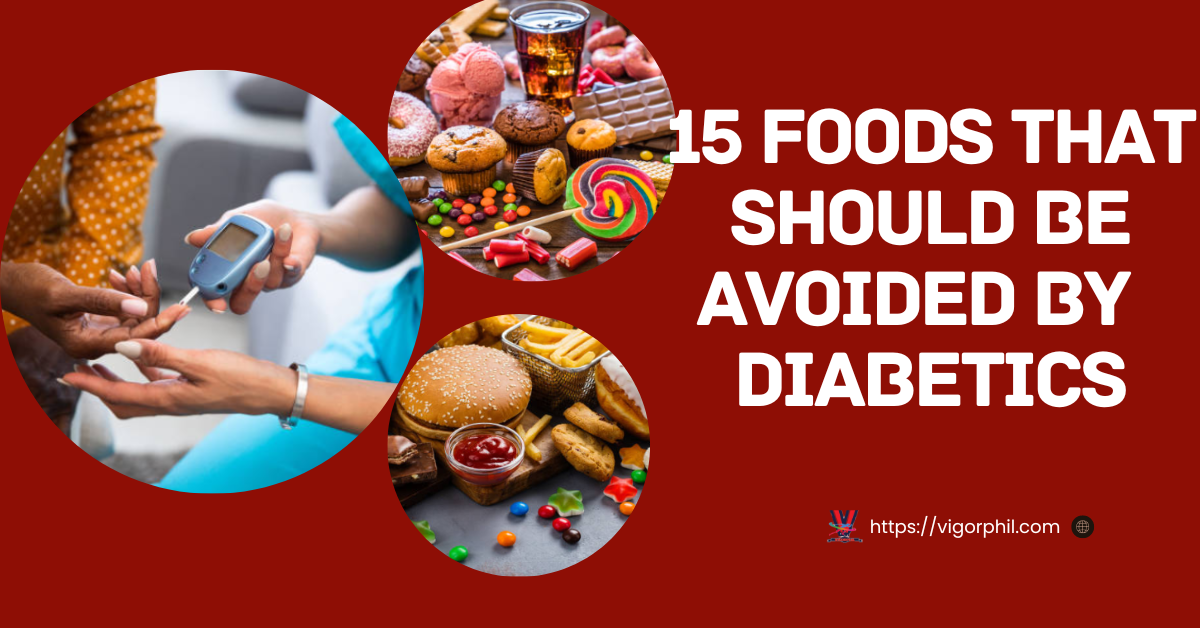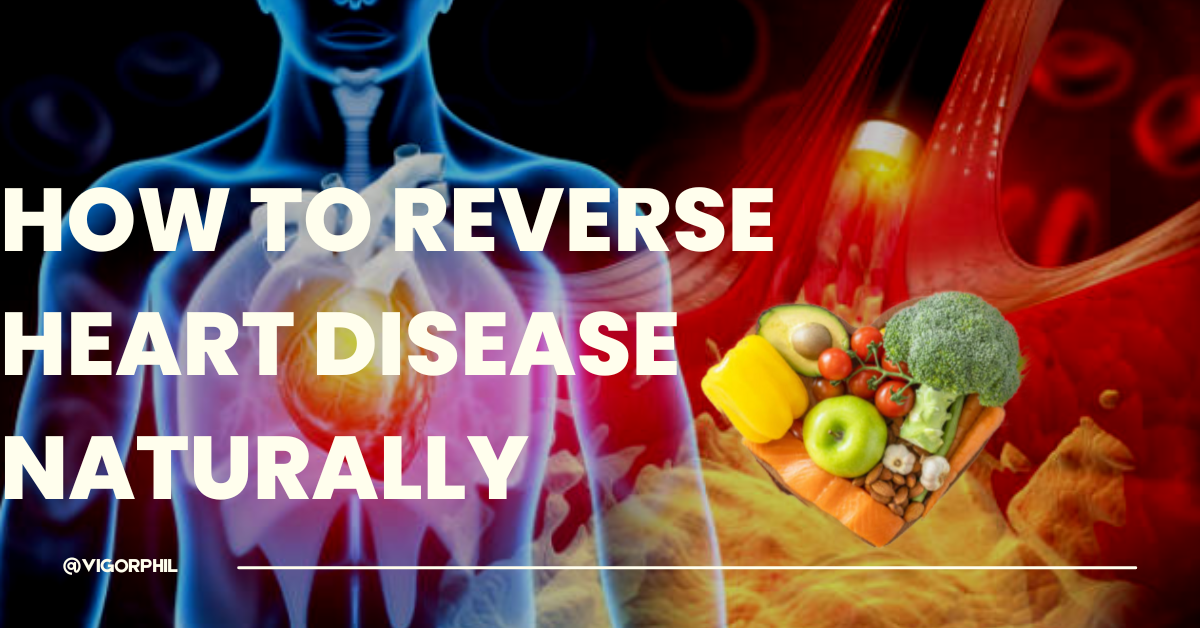Eating a healthy diet is crucial for managing diabetes and preventing complications. However, certain foods can be particularly harmful for individuals with diabetes. These foods are often high in added sugars, refined carbohydrates, and unhealthy fats, which can lead to blood sugar spikes and contribute to weight gain. To keep blood sugar levels in check and maintain a healthy weight, it is important for people with diabetes to avoid certain foods.
In this article, we will discuss 15 foods that should be avoided by individuals with diabetes. These include processed foods, fried foods, white flour products, high-fat meats, sugary drinks, high-sugar snacks, trans fats, refined grains, high-fat dairy products, alcohol, packaged and pre-made meals, canned fruits in syrup, frozen dinners, sweetened low-fat yogurt and energy drinks and sports drinks high in added sugars.
1. Processed foods are to be avoided by diabetics
Processed foods are generally high in added sugars, saturated fats, and sodium, which can contribute to the development of type 2 diabetes and other health problems. Diabetics should avoid processed foods as much as possible and instead opt for whole, unprocessed foods such as fruits, vegetables, lean proteins, and whole grains.
Processed foods often have added sugar which can increase blood sugar level and unhealthy fats that can contribute to weight gain. Eating a diet that is high in processed foods can also make it more difficult to control blood sugar levels. It is important for diabetics to pay attention to food labels and ingredient lists when shopping for groceries, and to be aware of hidden sources of added sugars, such as syrups and sweeteners.
2. Fried foods are to be avoided by diabetics
Fried foods should generally be avoided by individuals with diabetes, as they are high in calories, saturated fats, and trans fats, all of which can contribute to weight gain and an increased risk of heart disease.
Additionally, the high heat used in frying can also cause the formation of advanced glycation end products (AGEs), which can damage blood vessels and contribute to the development of diabetes complications. Instead, individuals with diabetes should focus on incorporating more whole, unprocessed foods into their diet, such as fruits, vegetables, whole grains, lean proteins, and healthy fats.
3. White flour products are to be avoided by diabetics
White flour products, such as white bread, pastries, and pasta, should be avoided by people with diabetes because they are high in refined carbohydrates. These foods are rapidly absorbed by the body and can cause a spike in blood sugar levels.
Whole grains, such as whole wheat bread and brown rice, are a better option for diabetics as they contain more fiber and nutrients and are absorbed more slowly by the body, helping to keep blood sugar levels stable. It’s important for diabetics to consult with a healthcare professional for personalized dietary recommendations.
4. high-fat meats are to be avoided by diabetics
High-fat meats, such as bacon, sausage, and fatty cuts of beef and pork, should be avoided by people with diabetes. These meats are high in saturated fats, which can increase the risk of heart disease and other complications associated with diabetes.
In addition, high-fat meats are calorie-dense, which can make it difficult for diabetics to control their weight and blood sugar levels. Lean meats, such as chicken, turkey, and fish, are a better option for diabetics as they are lower in fat and calories and can help to keep blood sugar levels stable. It’s important for diabetics to consult with a healthcare professional for personalized dietary recommendations.
5. sugary drinks are to be avoided by diabetics
Sugary drinks, such as soda, energy drinks, and sweetened teas, should be avoided by individuals with diabetes. These drinks are high in added sugars, which can cause a rapid spike in blood sugar levels. This can be particularly dangerous for people with diabetes, as it can increase their risk of developing complications related to the disease, such as heart disease and nerve damage. Additionally, sugary drinks are often high in calories, which can contribute to weight gain, another risk factor for diabetes. Instead, diabetics should opt for water, unsweetened tea, or other low- or no-calorie beverages.
6. high-sugar snacks ARE TO BE AVOIDED BY DIABETICS
High-sugar snacks, such as candy, pastries, and chocolate, should be avoided by individuals with diabetes. These foods are high in added sugars, which can cause a rapid spike in blood sugar levels. This can be particularly dangerous for people with diabetes, as it can increase their risk of developing complications related to the disease, such as heart disease and nerve damage. Additionally, high-sugar snacks are often high in calories, which can contribute to weight gain, another risk factor for diabetes. Instead, diabetics should opt for low-sugar snacks such as fresh fruits and vegetables, nuts, and low-fat cheese.
7. trans fats ARE TO BE AVOIDED BY DIABETICS
Trans fats, also known as partially hydrogenated oils, should be avoided by individuals with diabetes. These fats are found in a variety of foods such as fried foods, baked goods, snack foods, and processed foods. Trans fats raise the “bad” LDL cholesterol levels, lower “good” HDL cholesterol levels and can contribute to the development of heart disease, which people with diabetes are at a higher risk for.
Additionally, consumption of trans fats has been linked to an increased risk of type 2 diabetes. To avoid trans fats, it’s important to read food labels and avoid products that contain “partially hydrogenated oil” in the ingredient list. Also it’s important to limit consumption of fried food, and choose healthier options such as baking, grilling, and boiling instead.
8. Refined grains ARE TO BE AVOIDED BY DIABETICS
Refined grains, such as white flour, white rice, and pasta made from refined wheat, should be avoided by individuals with diabetes. Refined grains have had the bran, germ, and endosperm removed, which reduces the amount of fiber, vitamins, and minerals that are naturally found in whole grains. This process also increases the rate at which glucose is absorbed into the bloodstream, which can cause a rapid spike in blood sugar levels.
This can be particularly dangerous for people with diabetes, as it can increase their risk of developing complications related to the disease, such as heart disease and nerve damage. Instead, diabetics should opt for whole grains, such as whole wheat bread, brown rice, and quinoa, which provide more fiber and nutrients, and can help regulate blood sugar levels.
9. High-fat dairy products ARE TO BE AVOIDED BY DIABETICS
High-fat dairy products, such as whole milk, cream, and butter, should be avoided by individuals with diabetes. These products are high in saturated fats which can contribute to the development of heart disease, which people with diabetes are at a higher risk for. Saturated fats can raise “bad” LDL cholesterol levels in the blood, which can clog the arteries and increase the risk of heart disease and stroke.
Additionally, high-fat dairy products are often high in calories, which can contribute to weight gain, another risk factor for diabetes. Instead, diabetics should opt for low-fat or fat-free dairy products, such as skim milk, low-fat yogurt, and cheese made with reduced-fat milk, which provide the same nutrients but with less saturated fat and calories.
10. Alcohol ARE TO BE AVOIDED BY DIABETICS
Alcohol should be consumed in moderation by individuals with diabetes. Drinking excessive amounts of alcohol can raise blood sugar levels, which can be dangerous for people with diabetes. Alcohol can also lead to poor decision making, which can result in poor dietary choices and lack of physical activity.
Additionally, alcohol is high in calories, which can contribute to weight gain, another risk factor for diabetes. Also, heavy drinking can damage the liver, which can make it harder for the body to regulate blood sugar levels. It’s important to note that drinking on an empty stomach can cause a more rapid spike in blood sugar levels, so it’s recommended to have a meal before drinking alcohol.
Diabetics should talk to their healthcare provider to know the appropriate amount of alcohol they can consume and to monitor their blood sugar levels before and after drinking.
11. Packaged and pre-made meals ARE TO BE AVOIDED BY DIABETICS
Packaged and pre-made meals can be high in added sugars, sodium, and saturated fats, which can be harmful for people with diabetes. These types of foods are also often low in nutrient-dense ingredients, such as fruits, vegetables, and whole grains, which are important for managing blood sugar levels.
It’s generally recommended that people with diabetes should avoid processed foods and opt for whole, unprocessed foods instead. This includes preparing meals at home using fresh ingredients and cooking methods that promote healthy blood sugar control. Consulting with a dietitian or healthcare professional can also be helpful for creating a meal plan that works for you.
12. Canned fruits ARE TO BE AVOIDED BY DIABETICS
Canned fruits in syrup can be high in added sugars, which can be harmful for people with diabetes. The syrup used in canned fruits is often a form of added sugar that can spike blood sugar levels and cause difficulty in managing diabetes. Additionally, these types of canned fruits usually have a lower nutritional value compared to fresh or frozen fruits, because they lose some of their nutrients during the canning process.
It’s generally recommended that people with diabetes should avoid processed foods, including canned fruits in syrup, and opt for fresh or frozen fruits instead. Fresh fruits are a good source of fiber, vitamins, and minerals that can help in managing blood sugar levels. When buying fresh fruits, it’s best to choose the ones that are in season, as they are typically less expensive and more flavorful. Frozen fruits are also a good option as they are flash-frozen at peak ripeness, and retain much of their nutritional value.
It’s important to note that eating fruits in any form should be consumed in moderation and as part of a well-balanced meal plan. Consulting with a dietitian or healthcare professional can also be helpful for creating a meal plan that works for you.
13. Frozen dinners ARE TO BE AVOIDED BY DIABETICS
Frozen dinners can be a convenient option for busy individuals, however they can be high in added sugars, sodium, and saturated fats which can be harmful for people with diabetes. These types of foods are also often low in nutrient-dense ingredients, such as fruits, vegetables, and whole grains, which are important for managing blood sugar levels. Frozen dinners are also usually high in calories and portion sizes, which can contribute to weight gain.
It’s generally recommended that people with diabetes should avoid processed foods and opt for whole, unprocessed foods instead. This includes preparing meals at home using fresh ingredients and cooking methods that promote healthy blood sugar control. Consulting with a dietitian or healthcare professional can also be helpful for creating a meal plan that works for you.
If you still want to opt for frozen dinners, look for options that are labeled “low sodium” or “low sugar” and read the nutrition labels carefully, also be mindful of portion size, and balance it with other nutrient-dense foods.
14. Sweetened low-fat yogurt ARE TO BE AVOIDED BY DIABETICS
Sweetened low-fat yogurt can be high in added sugars, which can be harmful for people with diabetes. The added sugars in sweetened yogurt can spike blood sugar levels and make it difficult to manage diabetes. Additionally, sweetened low-fat yogurts may have less protein and fat, which can make it less satisfying and can lead to overeating.
It’s generally recommended that people with diabetes should avoid processed foods, including sweetened low-fat yogurt, and opt for unsweetened, full-fat yogurt instead. Unsweetened, full-fat yogurt is a good source of protein, healthy fats and probiotics, which can help in managing blood sugar levels. When buying yogurt, it’s best to check the label for added sugars and opt for the one with the least amount of sugar.
It’s important to note that eating yogurt in any form should be consumed in moderation and as part of a well-balanced meal plan. Consulting with a dietitian or healthcare professional can also be helpful for creating a meal plan that works for you.
15. Energy drinks ARE TO BE AVOIDED BY DIABETICS
Energy drinks and sports drinks are not recommended for diabetics due to their high sugar content. Many energy drinks contain large amounts of added sugar, which can raise blood sugar levels and contribute to the development of diabetes and other health problems. Additionally, the caffeine in energy drinks can also affect blood sugar levels and cause complications for diabetics. It is best for diabetics to avoid energy drinks and instead opt for water, herbal tea, or other low-sugar and caffeine-free beverages.
conclusion
In conclusion, it’s important for diabetics to be mindful of their food choices to help manage their blood sugar levels. Foods high in sugar and simple carbohydrates, such as white bread, pasta, and sugary drinks, should be avoided or consumed in moderation. Processed foods and foods high in saturated and trans fats should also be limited.
It’s also important for diabetics to consume a balanced diet that includes plenty of fruits, vegetables, lean proteins, and whole grains. Additionally, regular physical activity and monitoring blood sugar levels can also help manage diabetes. With the right diet and lifestyle choices, diabetics can effectively manage their condition and improve their overall health.











